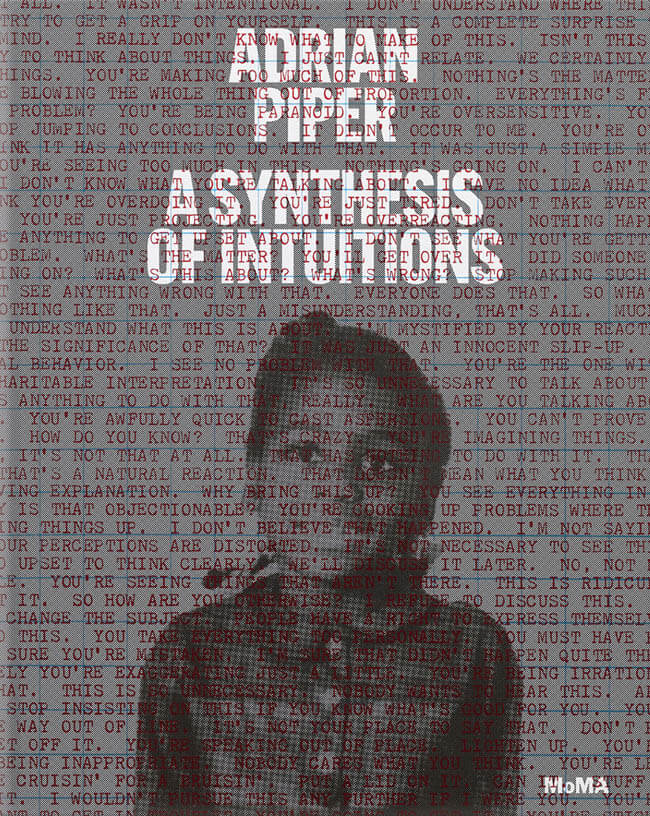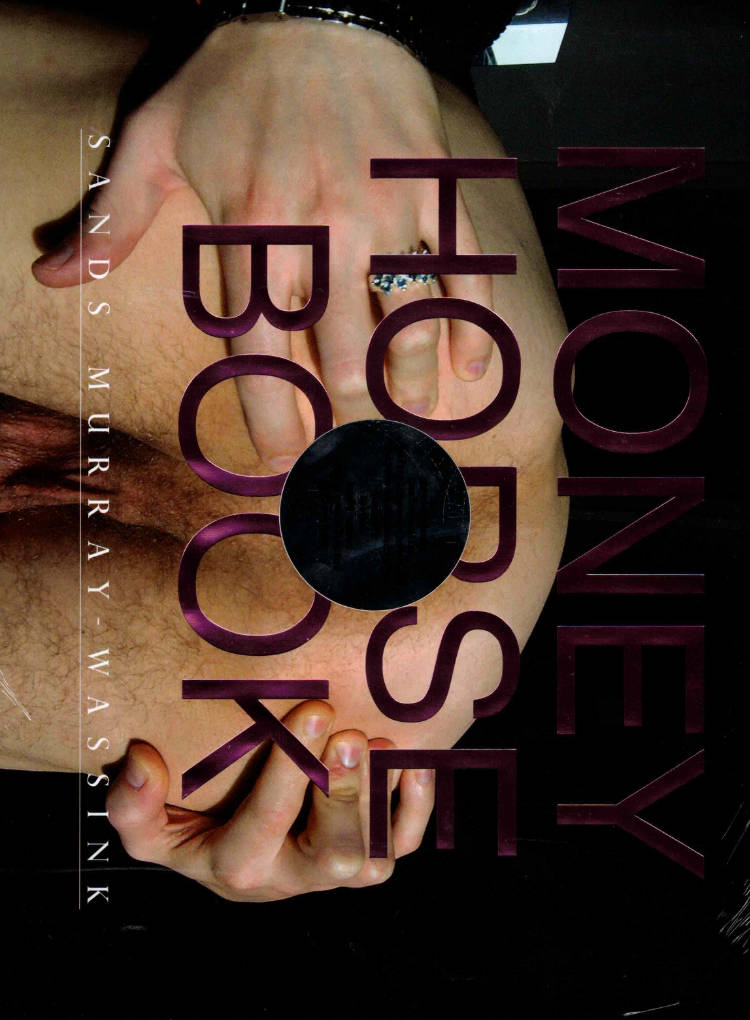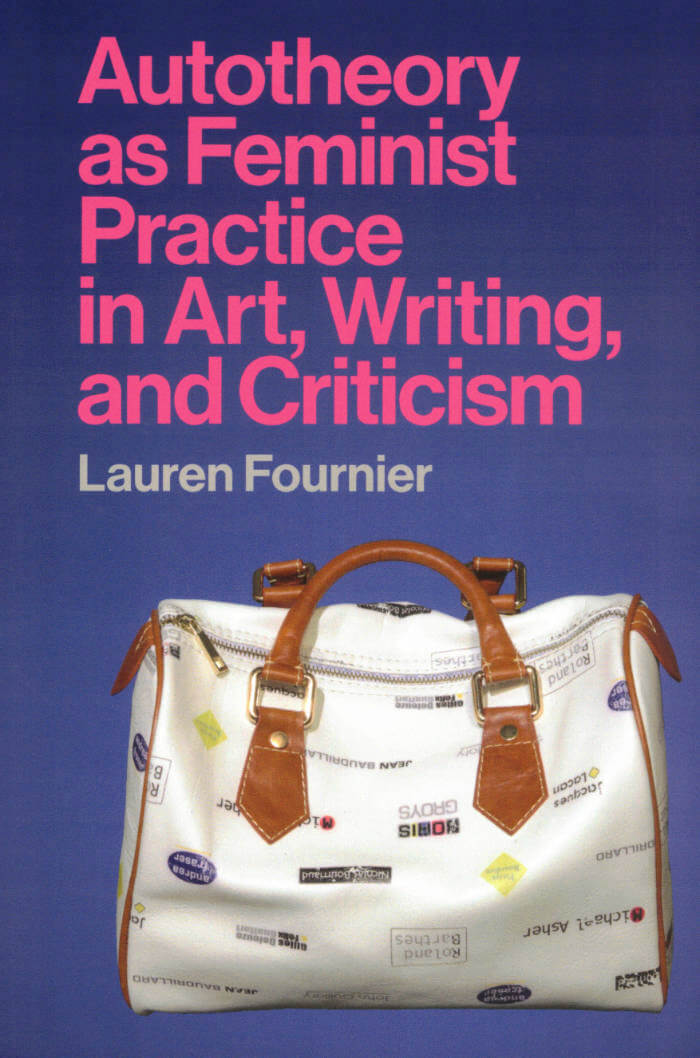Adrian Piper
Adrian Piper

Escape to Berlin: A Travel Memoir
A long-overdue English edition of Piper's memoir chronicling the story of her emigration from the US to Berlin.
In 2005 American artist and philosopher Adrian Piper (born 1948) secretly emigrated from the United States. Several months passed before anyone realized she had disappeared. She resurfaced in Berlin and has lived there ever since. Piper has consistently and firmly refused to return to the US or explain why she left. Many assume it was because she discovered her name on the Transportation Security Administration's Suspicious Travelers watchlist. Others point to Wellesley College's forcible termination of her tenured full professorship. Yet others speculate that George W. Bush's presidency, or American racism, or the invasion of Iraq compelled her to leave. All these conjectures are groundless. Escape to Berlin: A Travel Memoir is a gripping autobiographical narrative that provides a full account of the facts from the artist herself. Previously out of print, this essential memoir returns in English for fans of the beloved conceptualist to discover and enjoy anew.

Adrian Piper: A Synthesis of Intuitions 1965–2016
Adrian Piper has consistently produced groundbreaking work that has profoundly shaped the form and content of conceptual art since the 1960s. Strongly inflected by her longstanding involvement with philosophy and yoga, her pioneering investigations into the political, social, psychological and spiritual potential of conceptual art have had an incalculable influence on artists working today.
Published in conjunction with the most comprehensive exhibition of her work to date, this catalog presents more than 280 artworks that encompass the full range of Piper's mediums: works on paper, video, multimedia installation, performance, painting, sound and photo-texts.
Essays by curators and scholars examine her extensive research into altered states of consciousness; the introduction of the Mythic Being, her subversive masculine alter-ego; her media and installation works from after 1980, which reveal and challenge stereotypes of race and gender; and the global conditions that illuminate the significance of her art.
Previously unpublished texts by the artist lay out significant events in her personal history and her deeply felt ideas about the relationship between viewer and art object. This publication expands our understanding of the conceptual and post-conceptual art movements and Piper's pivotal position among her peers and for later generations.
Adrian Piper (born 1948) is a first-generation conceptual artist and analytic philosopher. She received an AA in Fine Art from the School of Visual Arts in 1969, a BA in Philosophy with a minor in Medieval and Renaissance Musicology from the City College of New York in 1974 and a PhD in Philosophy from Harvard University in 1981. Piper's artwork is in the collections of The Museum of Modern Art, the Centre Pompidou, the Metropolitan Museum of Art, the Generali Foundation and the Museum of Contemporary Art of Los Angeles, among others.
And more

MONEY HORSE BOOK
Sands Murray-Wassink (b. 1974, Topeka, Kansas) is a painter, writer, and performance artist based in Amsterdam. A long-overlooked cult figure in the city’s art scene, his work spans decades, touching on themes of gender, desire, intimacy, mental health, and self-exploration. Deeply influenced by intersectional feminism and queer theory, his practice revolves around, and is shaped by figures such as Carolee Schneemann, Hannah Wilke, Adrian Piper, and Eva Hesse.
Since 2014, Sands has predominantly focused on what he calls “Horse Drawings,” utilizing mostly watercolors and often incorporating quickly drawn texts, on A4 and A3 formats, both on white, colored paper and found material such as newspapers. These drawings, while sometimes devoid of actual horse imagery, all bear the title and embody the spirit of equine grace, symbolizing a personal journey towards healing. The horse, a figure the artist was once restricted from engaging with by his grandfather due to its perceived femininity, has evolved in his work as an emblem of transformation and healing. The book includes a broad selection of over 700 drawings printed in full color, and the short text Investment by Sands.


Going Out – Walking, Listening, Soundmaking
Going Out explores the relationship between walking, listening, and soundmaking in the arts – from the first soundwalks and itinerant performances in the 1960s to today’s manifold ambulatory projects. The book consists of an extensive essay by Elena Biserna followed by an anthology of 51 historical and contemporary contributions in the form of documentation, essays, interviews, manifestos, scores, narratives and reflections.
Essay by Elena Biserna.
Contributions by Max Neuhaus, Willem de Ridder, William Levy, Collective Actions Group, David Helbich, Janet Cardiff, Jacek Smolicki, Carolyn Chen, Tao G. Vrhovec Sambolec, Hildegard Westerkamp, Albert Mayr, Tim Ingold, Akio Suzuki, katrinem, Beatrice Ferrara & Leandro Pisano, Catherine Clover, AM Kanngieser, Gascia Ouzounian & Sarah Lappin, Ultra-red, Vivian Caccuri, Stefan Szczelkun, LIGNA, Edyta Jarząb, Oupa Sibeko, Brian Hioe, Brandon LaBelle, Adrian Piper, Andra McCartney & Sandra Gabriele, Amanda Gutiérrez, Jennifer Lynn Stoever, Stephanie Springgay, Carmen Papalia, Christine Sun Kim, Charles Eppley, Budhaditya Chattopadhyay, Viv Corringham, BNA-BBOT, Ella Parry-Davies & Ann, Mendi + Keith Obadike, Gwenola Wagon & Stéphane Degoutin, Eleni Ikoniadou, Justin Bennett, Christina Kubisch & Christoph Cox, RYBN, Alisa Oleva, Naomi Waltham-Smith, Anna Raimondo, Libby Harward.

Autotheory as Feminist Practice in Art, Writing, and Criticism
Autotheory—the commingling of theory and philosophy with autobiography—as a mode of critical artistic practice indebted to feminist writing and activism.
In the 2010s, the term “autotheory” began to trend in literary spheres, where it was used to describe books in which memoir and autobiography fused with theory and philosophy. In this book, Lauren Fournier extends the meaning of the term, applying it to other disciplines and practices. Fournier provides a long-awaited account of autotheory, situating it as a mode of contemporary, post-1960s artistic practice that is indebted to feminist writing, art, and activism. Investigating a series of works by writers and artists including Chris Kraus and Adrian Piper, she considers the politics, aesthetics, and ethics of autotheory.
Fournier argues that the autotheoretical turn signals the tenuousness of illusory separations between art and life, theory and practice, work and the self—divisions long blurred by feminist artists and scholars. Autotheory challenges dominant approaches to philosophizing and theorizing while enabling new ways for artists and writers to reflect on their lives. She argues that Kraus's 1997 I Love Dick marked the emergence of a newly performative, post-memoir “I”; recasts Piper's 1971 performance work Food for the Spirit as autotheory; considers autotheory as critique; examines practices of citation in autotheoretical work, including Maggie Nelson's The Argonauts; and looks at the aesthetics and ethics of disclosure and exposure, exploring the nuanced feminist politics around autotheoretical practices and such movements as #MeToo. Fournier formulates autotheory as a reflexive movement, connecting thinking, making art, living, and theorizing.

Pasts, Futures, and Aftermaths: Revisiting the Black Dada Reader
The sequel to Pendleton's acclaimed Black Dada Reader, compiling an anti-canon of radical experimentation and thought.
In 2011, artist Adam Pendleton (born 1984) assembled Black Dada Reader, a compendium of texts, documents and positions that elucidated a practice and ethos of Black Dada. Resembling a school course reader, the book was a spiral-bound series of photocopies and collages, originally intended only for personal reference, and eventually distributed informally to friends and colleagues. The contents - an unlikely mix of Hugo Ball, W.E.B. Du Bois, Adrian Piper, Gertrude Stein, Sun Ra, Stokely Carmichael, Gilles Deleuze -formed a kind of experimental canon, realized through what Pendleton calls radical juxtaposition. In 2017, Koenig Books published the Reader in a hardcover edition, with newly commissioned essays and additional writings by the artist. A decade later, Pendleton has composed another reader, building upon the constellation of writers, artists, filmmakers, philosophers and critics that emerged in the first volume.
Source texts by Sara Ahmed, Mikhail Bakhtin, Toni Cade Bambara, Amiri Baraka, Augusto de Campos, Hardoldo de Campos, and Décio Pignatari, Angela Davis, Gilles Deleuze, Julius Eastman, Adrienne Edwards, Clarice Lispector, Achille Mbembe, Philippe-Alain Michaud, Charles Mingus, Piet Mondrian, Leslie Scalapino, Leonard Schwartz and Michael Hardt, Juliana Spahr, Cecil Taylor and Malcolm X.

Adrian Piper: Performing Objects I have Been
Adrian Piper: Performing Objects I Have Been, 1972-2018, is a collection of documents from, or potentially relevant to Adrian Piper's performance Some Reflective Surfaces (1975-76) that has been edited by art historian and curator Rhea Anastas. This publication sits within If I Can't Dance, I Don't Want To Be Part Of Your Revolution's Peformance in Residence Series, and its seventh artistic program, Social Movement (2017-18).
Adrian Piper, who lives in Berlin, at the age of seventy-two, is one of America's best-known artists. It so happens she is also one of America's best-known female artists. And yet, to use such a qualifier is to make the mistake of accepting limitations, coerced and containing, for artists and thier work— and, to quote Jacqueline Rose, "to dissolve the very possibility for women of any purchase on historical time."
This publication focuses on an early performance called Some Reflective Surfaces (1975-76). In it, as Piper dances under spotlights, she stages multiple images and sounds. Over the work's duration, the audience follows the performer's images, physical performance, and sound. In "Artist's Statement" (1999), Piper descrvibes her 1960's work that led up to this one as "concered with duration, repetition, and meditative conciousness of the indexical present." Some Reflective Surfaces was produced in New York at the Fine Arts Building, New York University, in 1975, and then at the Whitney Museum of American Art in 1976. The performance has not been staged since. A collection of the documents of Some Reflective Surfaces is reissued in this publication for the first time, along with other writings spanning Piper's work from 1972-2018.
Published 2021.

Adrian Piper: Necessary Questions
Consisting of an internal report written by conceptual artist and philosopher Adrian Piper in 1998, Necessary Questions takes Wellesley College, Massachusetts—where she was then on staff—as a case study in institutional racism and neglect. As such, the report could be read simply as an administrative document, though one drenched in meticulously clear advice that could still be, despite being written twenty-three years ago, taken up on a glaringly universal level. Yet the role the report went on to play in Piper’s life proves it’s not just a context-specific document, but an all-too-real example of exactly what it stood against: the ways in which the langue of protocol and the false façade of civility are utilised as tactics to ensure that one stays in their place.
It is the third title from Unbidden Tongues, a series edited by Isabelle Sully that focuses on previously produced yet relatively uncirculated work by cultural practitioners busy with questions surrounding civility and civic life—particularly so in relation to language.